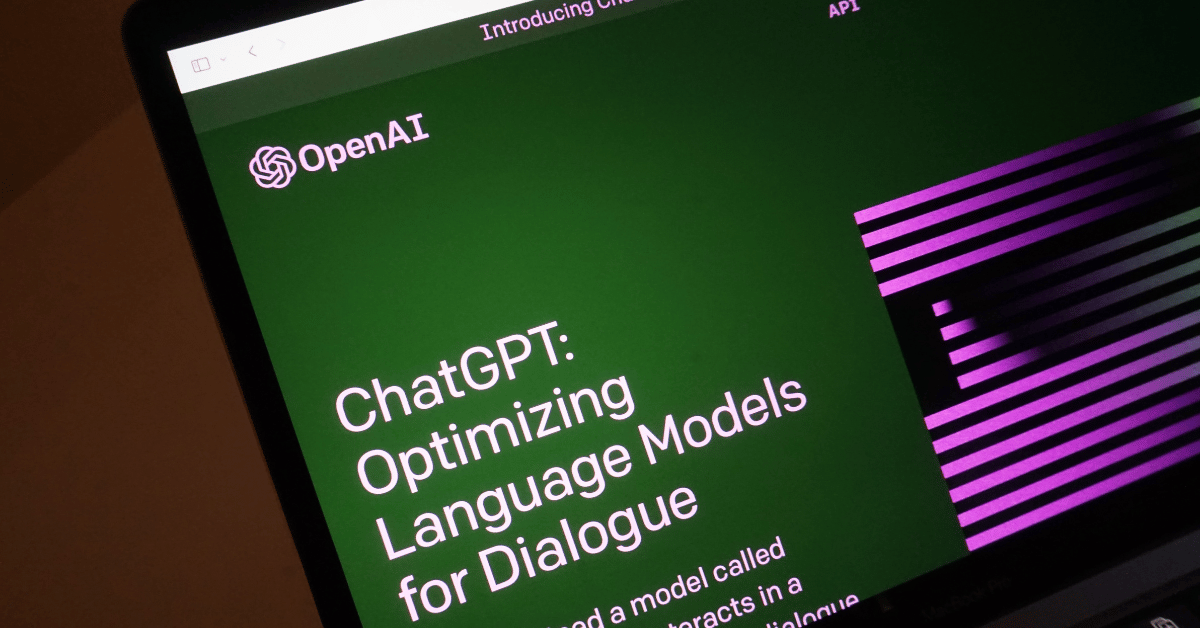ChatGPT: The Definitive Guide to Understanding Its Impact on AI and Beyond
Table of Contents
- Introduction to ChatGPT
- The Evolution of ChatGPT
- Why ChatGPT Matters
- ChatGPT Applications and Use Cases
- Limitations and Ethical Considerations
- The Future of ChatGPT and AI
Introduction to ChatGPT
ChatGPT, short for Chat Generative Pre-trained Transformer, is a cutting-edge artificial intelligence (AI) language model developed by OpenAI. It is designed to understand and generate human-like text based on the input provided to it. ChatGPT is built on the GPT-4 architecture, leveraging deep learning techniques to create highly sophisticated responses in a variety of contexts.
The Evolution of ChatGPT
ChatGPT has undergone several iterations since its inception, with each version improving upon its predecessor’s capabilities. The most recent model, GPT-4, boasts unparalleled language understanding, enabling it to generate highly coherent and contextually relevant responses. This remarkable evolution has been driven by ongoing advancements in AI research and the integration of increasingly large datasets.
Why ChatGPT Matters
ChatGPT has emerged as a groundbreaking innovation in the world of AI for several reasons:
Unprecedented Language Understanding
The model’s ability to generate coherent and contextually accurate text has surpassed the capabilities of previous AI systems. This level of language understanding opens up new possibilities for creating more nuanced and sophisticated conversational agents.
Versatility
ChatGPT can be used across a wide range of industries and applications, from content creation to customer service, making it a versatile and powerful tool for organizations seeking to harness the power of AI.
Accelerating AI Research
ChatGPT’s success has provided a foundation for further AI advancements, as researchers continue to refine and develop new models with even greater capabilities.
ChatGPT Applications and Use Cases
The potential applications for ChatGPT are vast, with organizations across various sectors already leveraging its capabilities to enhance their operations. Some of the key use cases include:
Content Generation
ChatGPT can be used to generate high-quality, contextually relevant content for websites, blogs, and social media platforms, enabling businesses to streamline their content creation processes.
Customer Support
AI-driven chatbots powered by ChatGPT can provide efficient and accurate customer service, significantly reducing response times and improving overall satisfaction.
Language Translation
With its advanced understanding of multiple languages, ChatGPT can be used to facilitate seamless translations and improve cross-cultural communication.
Personal Assistants
Voice-activated personal assistants can leverage ChatGPT to provide users with more accurate and contextually relevant responses, enhancing the overall user experience.
Limitations and Ethical Considerations
Despite its impressive capabilities, ChatGPT is not without its limitations and ethical concerns:
Bias
AI models can inadvertently learn and perpetuate biases present in the training data, which can lead to the generation of biased or inappropriate responses.
Misinformation
ChatGPT can potentially produce factually incorrect or misleading information, making it crucial for users to verify the accuracy of generated content.
Ethical Implications
The deployment of AI-driven language models raises ethical concerns related to privacy, fairness, and transparency, necessitating the development of robust guidelines and frameworks to ensure responsible usage.
The Future of ChatGPT and AI
The ongoing development and refinement of ChatGPT and its underlying technologies promise exciting prospects for the future of AI:
Improved Language Understanding
Future iterations of ChatGPT will likely exhibit even greater language understanding and contextual awareness, enabling more nuanced and accurate text generation.
Expansion into New Domains
As the technology advances, ChatGPT will likely be integrated into an increasing number of domains, from healthcare to finance, driving innovation and improving efficiency across various sectors.
Enhanced Collaboration
ChatGPT can serve as a catalyst for human-AI collaboration, with AI-powered systems complementing human expertise and creativity to achieve better outcomes.
Addressing Ethical Challenges
The AI research community will continue to work towards mitigating the limitations and ethical concerns associated with ChatGPT, ultimately enhancing the model’s reliability and trustworthiness.
In conclusion, ChatGPT represents a major milestone in the development of AI language models, with its impressive language understanding capabilities and wide range of applications. As research and development progress, we can expect to see further advancements in this domain, ultimately leading to more sophisticated and versatile AI-driven solutions that benefit various industries and society as a whole.
Embracing Multilingual Capabilities
As the world becomes increasingly interconnected, the need for AI models that understand and generate text in multiple languages is growing. Future iterations of ChatGPT will likely expand their multilingual capabilities, enabling better cross-cultural communication and global collaboration.
Personalized AI Experiences
Advancements in ChatGPT technology will facilitate the creation of more personalized AI experiences tailored to individual users. By understanding users’ preferences, interests, and communication styles, AI systems can generate responses that are specifically catered to each person, enhancing the overall user experience.
Democratizing Access to AI
As ChatGPT and similar AI models continue to evolve, the accessibility and affordability of AI-powered solutions will likely increase. This democratization of AI technology will enable smaller organizations and individuals to harness the power of AI in their endeavors, leveling the playing field and promoting innovation across various industries.
Ensuring Data Privacy and Security
With the rise of AI-driven technologies like ChatGPT, concerns about data privacy and security have become increasingly prominent. Researchers and developers will need to prioritize the implementation of robust data protection measures to safeguard users’ information and build trust in AI systems.
Educating the Public on AI Capabilities and Limitations
Greater awareness and understanding of AI technologies, such as ChatGPT, are essential for ensuring responsible use and informed decision-making. Educational initiatives aimed at demystifying AI, clarifying its capabilities and limitations, and promoting best practices will play a crucial role in fostering responsible AI adoption.
Overall, the future of ChatGPT and AI is filled with promise and potential challenges. By addressing these challenges head-on and leveraging the remarkable capabilities of AI language models, we can look forward to a future where AI-powered solutions transform industries, drive innovation, and improve the lives of people around the world.
Bridging the Gap Between AI and Human Creativity
One of the most exciting prospects for the future of ChatGPT and AI is the potential to bridge the gap between machine-generated content and human creativity. By enhancing the collaboration between AI and humans, we can expect to see more innovative and groundbreaking solutions across a variety of fields.
Creative Writing and Artistic Expression
As AI language models like ChatGPT continue to improve, their ability to assist in creative writing and artistic expression will grow. Writers and artists can leverage AI-generated content to spark ideas, refine their work, and push the boundaries of their creativity.
Streamlining Complex Problem-Solving
ChatGPT’s advanced language understanding capabilities can be harnessed to streamline complex problem-solving processes. By providing AI-generated suggestions, alternatives, and insights, ChatGPT can help human experts tackle challenging problems more efficiently and effectively.
Enhancing Human Communication
The future of ChatGPT and AI may also see the technology being used to enhance human communication. By providing real-time suggestions, AI systems can help users refine their thoughts, articulate ideas more effectively, and ultimately improve the quality of their communication.
Fostering AI-Driven Innovation
As ChatGPT and other AI models continue to advance, we can expect to see a surge of AI-driven innovation across various industries:
Healthcare
AI language models can be used to analyze and synthesize vast amounts of medical literature, helping healthcare professionals stay up-to-date with the latest research, identify potential treatment options, and provide better patient care.
Education
ChatGPT can be utilized to create personalized learning experiences for students, offering tailored feedback, explanations, and study materials to help learners achieve their educational goals.
Environmental Sustainability
AI-driven language models can support efforts to promote environmental sustainability by analyzing large datasets, identifying patterns, and providing insights that can help inform policy decisions and drive innovation in sustainable technologies.
In conclusion, the ongoing development and refinement of ChatGPT and similar AI technologies hold immense potential to revolutionize numerous industries, enhance human creativity, and foster a new era of innovation. By continuing to address challenges and limitations, the future of ChatGPT and AI promises to bring about transformative change, improving the lives of people around the world and shaping the future of our global society.
I hope this gives a clearer view of what ChatGPT is and it’s capabilities both good and bad within today’s environment.
I will definitely be discussing ChatGPT in further blogs as new developments are released.
To The Top!
Ps. Check out some recent Press Releases on our new Rocket Recruiting V.3
Also, the launch of The Abundance Pub






